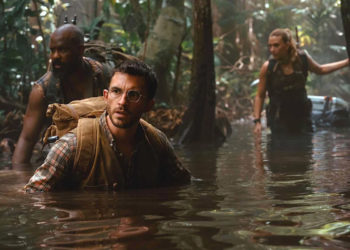Kelly Clarkson cancels Vegas residency opener just before showtime. Why?
Kelly Clarkson was "devastated" as she canceled her Las Vegas residency opening night just before showtime.The "Kelly Clarkson Show" host,...
15 “Jurassic World Rebirth” callbacks to “Jurassic Park”
Warning: This article contains spoilers about Jurassic World Rebirth.Jurassic World Rebirth screenwriter David Koepp may have actively worked to not...
Tesla robotaxi incidents spark confusion and concerns in Austin
Two weeks into Tesla’s robotaxi prototype rollout on the streets of Austin, Texas, a string of viral videos showing apparent...
Desperate search for missing girls from summer camp after Texas floods kill at least 24
KERRVILLE, Texas (AP) — At least 24 people were killed and a frantic search continued overnight for many others missing...
Unusual Social Security email touts Trump bill. Here’s what to know.
Social Security beneficiaries are accustomed to getting occasional emails from the program about matters like a benefits statement, but many...
3 mayors arrested in southern Turkey as part of crackdown on opposition
ISTANBUL (AP) — The mayors of three major cities in southern Turkey were arrested Saturday, state-run media reported, joining a...
Most Wanted’ Star Was 56
Actor Julian McMahon, known for his starring roles in Nip/Tuck, Charmed, FBI: Most Wanted and the 2000s Fantastic Four movies,...
Drone “narco sub” — equipped with Starlink antenna — seized for first time
The Colombian navy on Wednesday announced its first seizure of an unmanned "narco sub" equipped with a Starlink antenna off...
AI is making everyone on dating apps sound charming. What could go wrong?
Richard Wilson felt like he had struck gold: The 31-year-old met someone on a dating app who wanted to exchange...
China tells EU it can’t accept Russia losing its war against Ukraine, official says
Chinese Foreign Minister Wang Yi told the European Union’s top diplomat that Beijing can’t accept Russia losing its war against...














